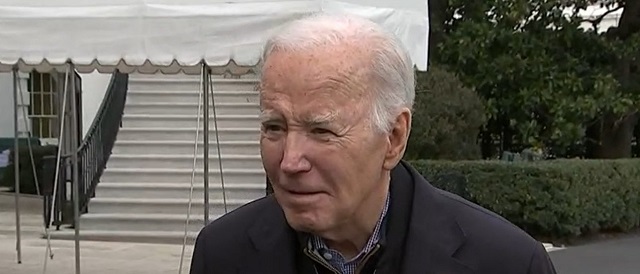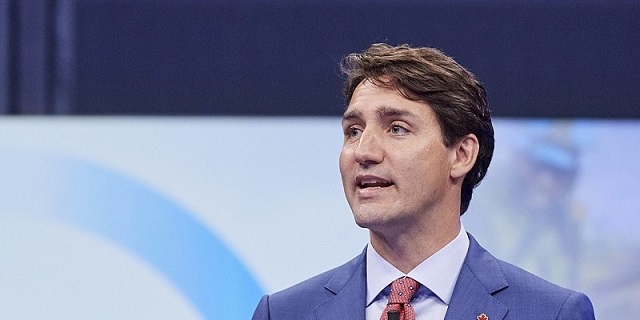Opinion
Trudeau’s home heating oil exemption shows politics trumps real affordability

From the Canadian Taxpayers Federation
Author: Jay Goldberg
It turns out desperate pigs really do fly.
In a colossal policy reversal, Prime Minister Justin Trudeau announced a suspension of the carbon tax on home heating oil for the next three years. But that one concession favours one region over others and is far from enough to protect Canadians from the brutal realities of the carbon tax’s impact on family budgets.
Trudeau’s carbon tax concession was specifically targeted at Atlantic Canada because it deals with home heating oil. Forty per cent of Atlantic Canadian households use heating oil to heat their homes. Compare that to just two per cent of Ontario households.
Atlantic Canada had a special deal with Trudeau until this summer. The federal government gave Atlantic provinces permission to exempt home heating oil from their carbon taxes.
But the region’s special deal ran out in July, with full federal carbon tax pricing kicking in on Canada Day, including on heating oil.
With winter fast approaching, taxpayers in Atlantic Canada recognized the massive tax hike they were about to face just to stay warm.
Last winter, Atlantic Canadian households paid no carbon tax on their home heating oil bill. This winter, the average household was poised to spend $272.
Public opinion polls of late show Atlantic Canadians are preparing to vote with their chequebooks. The anti-carbon tax Conservatives are gaining steam.
The Conservatives forced a vote in the House of Commons on repealing the carbon tax earlier this month. One Liberal MP from Newfoundland and Labrador had the courage to stand up for his constituents and vote to repeal the tax.
Avalon MP Ken McDonald was crystal clear in articulating why he voted the way he did.
“I’ve had people tell me they can’t afford groceries,” McDonald said. “They can’t afford to heat their homes. You can’t make it more expensive on people than what they can handle. And that’s exactly what’s happening right now.”
McDonald spoke a truth Trudeau has consistently refused to hear, or at least acknowledge. The federal carbon tax is making life less affordable for Canadians.
A report from the non-partisan Parliamentary Budget Officer shows this plain as day. This year, the average Canadian family will lose between $347 and $710 due to the carbon tax, even after the rebates.
After McDonald voted to repeal the carbon tax, other Liberal MPs from Atlantic Canada voiced their concerns in public.
In the wake of all of this, Trudeau caved. He announced a three year suspension of the carbon tax on home heating oil. Conveniently, that suspension ends just after the next federal election.
Most Ontario households use natural gas to heat their homes. It’s cleaner than home heating oil, but Trudeau is keeping the carbon tax on natural gas in place.
That’s proof that this is all about politics.
The average Ontario household using natural gas will be paying a $326 carbon tax bill this winter. Those folks won’t get an exemption under Trudeau’s new plan.
If Liberal MPs in Ontario take a courageous stand like McDonald did in Newfoundland, families here wouldn’t get punished with a carbon tax for heating their homes.
What shouldn’t be lost in any of this is that carbon tax misery will still be felt coast to coast, even though many in Atlantic Canada are getting special treatment.
Families in every province will still pay carbon taxes at the pumps when filling up to drive the kids to school. And food will still be more expensive because truckers who ship the food and farmers who produce the food will still be paying carbon taxes on fuel.
It’s time for Trudeau to stop driving up the cost of living and dividing Canadians based on political calculations. The feds need to axe the carbon tax on everything everywhere, no matter the postal code.
Energy
New Report Reveals Just How Energy Rich America Really Is

 From the Daily Caller News Foundation
From the Daily Caller News Foundation
A new report by the Institute for Energy Research (IER), a nonprofit dedicated to the study of the impact of government regulation on global energy resources, finds that U.S. inventories of oil and natural gas have experienced stunning growth since 2011.
The same report, the North American Energy Inventory 2024, finds the United States also leading the world in coal resources, with total proven resources that are more than 53% bigger than China’s.
Despite years of record production levels and almost a decade of curtailed investment in the finding and development of new reserves forced by government regulation and discrimination by ESG-focused investment houses, America’s technically recoverable resource in oil grew by 15% from 2011 to 2024. Now standing at 1.66 trillion barrels, the U.S. resource is 5.6 times the proved reserves held by Saudi Arabia.
The story for natural gas is even more amazing: IER finds the technically recoverable resource for gas expanded by 47% in just 13 years, to a total of 4.03 quadrillion cubic feet. At current US consumption rates, that’s enough gas to supply the country’s needs for 130 years.
“The 2024 North American Energy Inventory makes it clear that we have ample reserves of oil, natural gas, and coal that will sustain us for generations,” Tom Pyle, President at IER, said in a release. “Technological advancements in the production process, along with our unique system of private ownership, have propelled the U.S. to global leadership in oil and natural gas production, fostering economic benefits like lower energy prices, job growth, enhanced national security, and an improved environment.”
It is key to understand here that the “technically recoverable” resource measure used in financial reporting is designed solely to create a point-in-time estimate of the amount of oil and gas in place underground that can be produced with current technology. Because technology advances in the oil and gas business every day, just as it does in society at large, this measure almost always is a vast understatement of the amount of resource that will ultimately be produced.
The Permian Basin has provided a great example of this phenomenon. Just over the past decade, the deployment of steadily advancing drilling and hydraulic fracturing technologies has enabled producers in that vast resource play to more than double expected recoveries from each new well drilled. Similar advances have been experienced in the other major shale plays throughout North America. As a result, the U.S. industry has been able to consistently raise record overall production levels of both oil and gas despite an active rig count that has fallen by over 30% since January 2023.
In its report, IER notes this aspect of the industry by pointing out that, while the technically recoverable resource for U.S. natural gas sits at an impressive 4.03 quads, the total gas resource in place underground is currently estimated at an overwhelming 65 quads. If just half of that resource in place eventually becomes recoverable thanks to advancing technology over the coming decades, that would mean the United States will enjoy more than 1,000 years of gas supply at current consumption levels. That is not a typo.
Where coal is concerned, IER finds the US is home to a world-leading 470 billion short tons of the most energy-dense fossil fuel in place. That equates to 912 years of supply at current consumption rates.
No other country on Earth can come close to rivaling the U.S. for this level of wealth in energy mineral resources, and few countries’ governments would dream of squandering them in pursuit of a political agenda driven by climate fearmongering. “And yet, many politicians, government agents, and activists seek to constrain North America’s energy potential,” Pyle says, adding, “We must resist these efforts and commit ourselves to unlocking these resources so that American families can continue to enjoy the real and meaningful benefits our energy production offers.”
With President Joe Biden and former President Donald Trump staking out polar opposite positions on this crucial question, America’s energy future is truly on the ballot this November.
David Blackmon is an energy writer and consultant based in Texas. He spent 40 years in the oil and gas business, where he specialized in public policy and communications.
Opinion
Ordinary working Canadians are not buying into transgender identity politics

From LifeSiteNews
By Jonathon Van Maren
Progressives don’t seem to understand that most people simply trying to make a living aren’t interested in being hectored about their insufficiently up-to-date views on however many genders the Canadian establishment currently believes in.
A couple of weeks ago, I made the mistake of turning on the news on my car radio. It was the CBC, and a panel was discussing Canada’s housing crisis. According to the experts brought on by the CBC, this crisis was accompanied by a shortage in tradesmen, and this shortage was in part due to the fact that construction sites were hostile environments for women and “non-binary people.” This, the panel opined, was a huge problem that needed to be fixed. It reminded me that the salaries of Canadian tradesmen are garnished to pay for this garbage.
Listening to the panel, it struck me how out of touch progressive activists are with the reality of what they would call the “lived experience” of most normal people working normal, blue-collar jobs. Anyone who has worked on a construction site knows that enforcing political correctness – especially the swiftly moving Overton Window of acceptable speech these days – is a fool’s errand. Attempting to police the way men talk to one another on a job site is a great way to ensure hostility from said men, who incidentally have jobs to do.
But progressives don’t seem to understand that most people simply trying to make a living aren’t interested in being hectored about their insufficiently up-to-date views on however many genders the Canadian establishment currently believes in. Case in point is a recent column in the Globe and Mail sounding the alarm about a new Canadian travesty: “Non-binary job applicants are less likely to receive interest from employers if they disclose gender-neutral pronouns on their resume, according to a recent working paper.”
According to University of Toronto economics Ph.D. candidate Taryn Eames in a paper titled “TARYN VERSUS TARYN (SHE/HER) VERSUS TARYN (THEY/THEM): A Field Experiment on Pronoun Disclosure and Hiring Discrimination,” employers appear to be discriminating against “non-binary” Canadians. As Eames says in her abstract:
Thousands of randomly generated, fictitious resumes were submitted to job postings in pairs where the treatment resume contained pronouns listed below the name and the control resume did not. Two treatments were considered: nonbinary ‘they/them’ and binary ‘he/him’ or ‘she/her’ pronouns congruent with implied sex. As such, I estimate discrimination against nonbinary and presumed cisgender applicants who disclose pronouns. Results show that nonbinary applicants face discrimination: disclosing ‘they/them’ pronouns reduces positive employer response by 5.4 percentage points. There is also evidence that discrimination is larger (approximately double) in Republican than Democratic geographies, potentially reflecting attitudinal differences. By comparison, results are inconclusive as to whether presumed cisgender applicants who disclose pronouns are discriminated against.
In her paper, Eames states that there is “strong evidence of discrimination against applicants who disclose nonbinary ‘they/them’ pronouns,” and, like the CBC panel, announces that this is a problem that needs to be solved. “Non-binary gender identities are becoming more and more common, especially among younger generations,” she said. “These people are going to be aging into the labour force, and this is going to become a bigger and bigger topic over time.”
The Globe and Mail attempts, sloppily, to tie this study to parental rights policies in New Brunswick and elsewhere, as well as implying that Alberta’s proposal to ban sex change surgeries for minors are also part of an anti-trans trend that is “trickling down” into the workplace. “Even in situations where a hiring manager is open to hiring a non-binary employee, there may be perceived obstacles,” the Globe and Mail stated. “Customer-service positions, for instance, an employer might have concerns about how they will manage situations that can arise from employing a non-binary person.”
The reporters assume, of course, that “non-binary” – that is, claiming to be neither male nor female – is a real identity that should be accepted by every employer and all of society at large. The assumption is that there is no debate over this recently invented identity category whatsoever, and that the task at hand is to find ways of forcing employers to proactively affirm the assertions of LGBT activists. They apparently do not stop to consider the fact that many employers simply want to do business and not be forced into cooperating with an ideology that they are ambivalent about.
-

 Alberta2 days ago
Alberta2 days agoPharmacist-led clinics improve access to health care: Lessons from Alberta
-

 Alberta2 days ago
Alberta2 days ago30 million contraband cigarettes valued at $25 million dollars seized in Alberta
-

 COVID-191 day ago
COVID-191 day agoCOVID Lab Leak: Over four later, EcoHealth Alliance funding is finally suspended
-

 Health2 days ago
Health2 days agoUK pediatrician who led review of child ‘transitions’ says US medical groups ‘misleading the public’
-

 Alberta2 days ago
Alberta2 days agoFortis et Liber: Alberta’s Future in the Canadian Federation
-

 Crime1 day ago
Crime1 day agoSlovakian prime minister who opposed WHO Pandemic Treaty shot in assassination attempt
-

 Censorship Industrial Complex1 day ago
Censorship Industrial Complex1 day agoJim Jordan Exposes Biden’s Censorship-Industrial Complex
-

 Automotive2 days ago
Automotive2 days agoGovernments in Canada accelerate EV ‘investments’ as automakers reverse course









